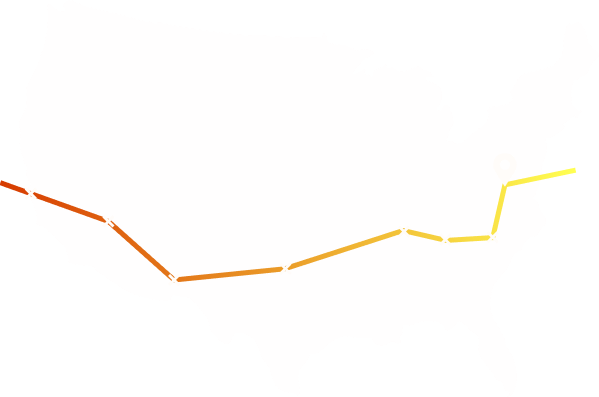Welcome to Your North Carolina License Journey
Embarking on your journey to get a North Carolina license can feel overwhelming, but Smart Move in Wilson, NC is here to help you navigate every step of the way. Whether you're moving to North Carolina or just need assistance with the various types of licenses available, our guide covers everything you need to know.
Getting Started with Your North Carolina License
What types of licenses are available in North Carolina?
In North Carolina, you can apply for various types of licenses depending on your needs. The most common types include:
- Driver’s Licenses: For operating standard vehicles.
- Non-Driver Identification Cards: For residents who need an official ID but do not drive.
- Commercial Driver’s Licenses (CDL): For operating large or commercial vehicles.
- Motorcycle Licenses: For operating motorcycles.
Why is it important to have a proper license?
Having the correct license is essential because it proves you are legally allowed to operate a vehicle or are officially recognized in North Carolina. This not only helps avoid legal trouble but also ensures your safety and that of others.
Ready to dive deeper into the specifics? Let’s start with the driver’s licenses in North Carolina.
Eligibility & Requirements
Minimum age requirements
In North Carolina, the minimum age to obtain different types of driver’s licenses is as follows:
- Learner’s Permit: 15 years old
- Provisional License: 16 years old
- Full Driver’s License: 18 years old
- Parents or guardians must provide consent for applicants under 18.
Resident and non-resident distinctions
- Residents: Must have a permanent address in North Carolina.
- Non-Residents: Can drive with a valid license from their home state or country but may need to obtain a North Carolina license if they establish residency.
Necessary documentation
When applying, you'll need various documents, including:
- Proof of Identity (e.g., Birth certificate, Passport)
- Proof of Social Security Number (e.g., Social Security card, W-2 form)
- Proof of North Carolina Residency (Utility bills, Lease agreement)
Types of Driver’s Licenses
Learner’s Permit
A learner’s permit allows new drivers to practice driving under certain conditions. Here’s what you need to know:
- Eligibility: Must be at least 15 years old and enrolled in a driver’s education course.
- Restrictions: Must drive with a licensed adult in the car and cannot drive between 9 PM and 5 AM.
- Application Process: Submit required documents, pass a vision test, and take a written knowledge exam.
Provisional License
A provisional license is the next step after a learner’s permit:
- Eligibility: Must be at least 16 years old and have held a learner’s permit for at least 12 months.
- Restrictions: May drive unsupervised except between 9 PM and 5 AM unless driving to work or school.
- Application Process: Pass a road test and submit all necessary documents.
Full Driver’s License
Once you’ve held a provisional license for at least six months and are at least 18 years old, you can obtain a full driver’s license.
Knowledge and Road Tests
Study guides and resources for the written test
The North Carolina Driver’s Handbook is an essential resource to study for the written test. You can find practice tests and other study materials online.
Booking and preparing for the driving test
You can schedule your driving test online or by visiting a DMV office. Practice with a licensed driver to ensure you’re comfortable behind the wheel.
What to expect on test day
Be ready to demonstrate your ability to perform basic driving maneuvers and understand traffic laws. Bring your learner’s permit, proof of completed driving hours, and a registered and insured vehicle.
Non-Driver Identification Cards
Eligibility & Requirements
Non-driver identification cards are for residents who do not drive but need an official ID.
Who is eligible for a non-driver ID?
Any resident of North Carolina, regardless of age, can apply for a non-driver ID.
Required documents for application
You’ll need:
- Proof of Identity
- Proof of Social Security Number
- Proof of North Carolina Residency
Application Process
- Submit Documentation: Provide all required documents.
- Fees: Pay the fees, which vary based on age and type of ID requested.
Commercial Driver’s Licenses (CDL)
Class A, B, and C commercial licenses
- Class A: For operating vehicles with a combined weight of 26,001 pounds or more.
- Class B: For single vehicles with a weight of 26,001 pounds or more.
- Class C: For vehicles that transport 16 or more passengers or hazardous materials.
Eligibility & Requirements
Age and medical requirements
- Must be at least 18 years old to drive within North Carolina, 21 to drive interstate.
- Must pass a medical examination and provide a Medical Examiner’s Certificate.
Documents needed for application
- Proof of identity
- Proof of residency
- Proof of Social Security Number
Application Process
- Study Materials: Obtain study guides and take preparatory courses.
- Submit Documentation: Provide all required documents.
- Testing: Pass a written knowledge test and a skills test.
Motorcycle Licenses
Eligibility & Requirements
- Minimum Age: Must be at least 16 years old.
- Required Documents: Proof of identity, Social Security Number, and residency.
Application Process
- Testing: Pass a written knowledge test and on-cycle skills test.
- Fees: Pay applicable fees.
License Renewal and Replacement
When & How to Renew
- Frequency: Renewal periods vary by license type but are generally every 5-8 years.
- Methods: Renew online, by mail, or in person.
Lost or Stolen Licenses
Steps to replace a lost or stolen license
- Report it to the police (especially if stolen).
- Gather required documents (proof of identity, etc.).
- Apply for a replacement online or in person.
Moving to North Carolina: Transferring Your License
Requirements for transferring an out-of-state license
- Must transfer within 60 days of establishing residency.
- Provide proof of identity, residency, and Social Security Number.
International Drivers
Foreign residents can drive with a valid license from their home country for up to one year. To obtain a North Carolina license, they must pass the vision, written, and road tests.
Your Big Step to Becoming a Licensed Driver in North Carolina
Getting your North Carolina license doesn’t have to be stressful. With this comprehensive guide, you’re well-equipped to handle every step. Remember, Smart Move is here to assist you through the process. Take the first step today and make your move smarter, not harder.



